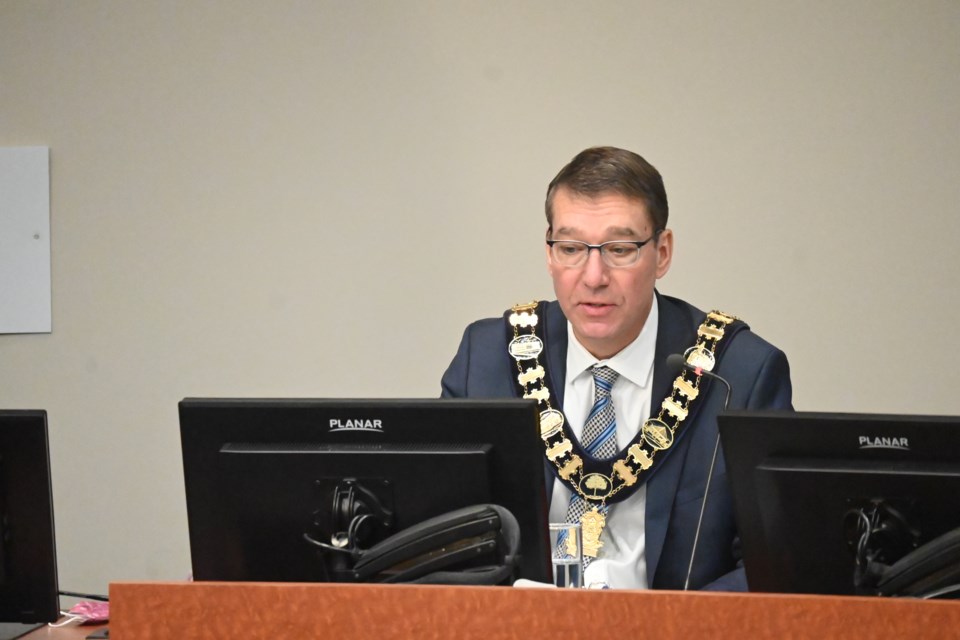The provincial budget lacks the dollars to keep Newmarket “whole,” but has welcome boosts to address homelessness and mental health, the mayor says.
Newmarket Mayor John Taylor said the budget released yesterday had a noticeable lack of funding for municipal losses that will result from provincial Bill 23, which cuts into development charges. But he welcomed some of the social spending, including $203 million more annually for homelessness and $425 million over three years for mental health.
Still, the province must keep a repeated promise to keep municipalities “whole” if they cannot find dollars to replace what they will lose under Bill 23.
“It is, by far, the most significant threat to the financial sustainability and our ability to build complete communities at a municipal and city level,” he said.
The province rolled out its 2023-24 budget, with $27.8 billion toward highway work, millions towards trade skills development and a plan to achieve a balanced position by next year.
“Ontario’s economy remains resilient, but the road ahead continues to be uncertain,” Minister of Finance Peter Bethlenfalvy said in a news release. “Our government has the right plan to navigate these challenges. We are building Ontario so we can have a strong economy for the future and the infrastructure needed to support growth across the province.”
Included in the budget is another $425 million over three years to connect more people to mental health and addiction services, including a five per cent increase in base funding to community-based providers.
That is welcome aid as Newmarket awaits a future mental health hub, Taylor said.
“There’s people out there, really through the pandemic, struggling with mental health,” he said. “Parents with teenage children who are at wit's end.”
The province also responded to calls for more action on homelessness. It is committing an additional $202 million to its Homelessness Prevention Program and Indigenous Supportive Housing Program to help those at risk of homelessness and community housing providers.
Newmarket itself passed a resolution this month asking the province to respond to the homelessness crisis and work with municipalities toward a comprehensive plan.
“That’s very significant,” Taylor said of the funding. “The challenge supporting people experiencing homelessness is increasing dramatically. To have some funding to do that is super important.”
The province has garnered some criticism from the opposition for plans to balance the budget this year, with a projected deficit of 1.3 billion after a surplus of $2.1 billion in the budget last year despite a projected deficit.
Organizations such as the Elementary Teachers' Federation of Ontario say dollars being held in contingency should be reinvested in services.
"Ontario’s current fiscal position provides a unique opportunity to adequately fund public services and reinstate funding that has been cut from public education over the past four years," it said in a news release. "Unfortunately, the government chose to withhold billions of dollars in contingency."
Despite municipalities feeling the sting of inflation and putting in place larger-than-usual tax increases to make that up — Newmarket is tentatively at a 5.5 per cent tax rate increase — Taylor said he does not see an issue with the province moving toward budget balance.
“We are in now, or certainly approaching, a time of a need for greater fiscal restraint,” he said. “There were steps taken and measures taken and deficits taken that were necessary in extraordinary times. But we have to think about long-term sustainability.”
Still, municipalities have been crying foul over Bill 23, which aimed to speed up housing development and reduce times in the planning process. Included in the bill was the ability for more developments to reduce or eliminate municipal development charges by building affordable, which is defined as 80 per cent of the market rate.
It has municipalities worried about covering the costs to build infrastructure related to new housing. The province has said municipalities have reserves to cover these things, but would investigate and keep municipalities “whole” if the dollars are not present.
“The financial impact has begun and we need to have that conversation,” Taylor said.


